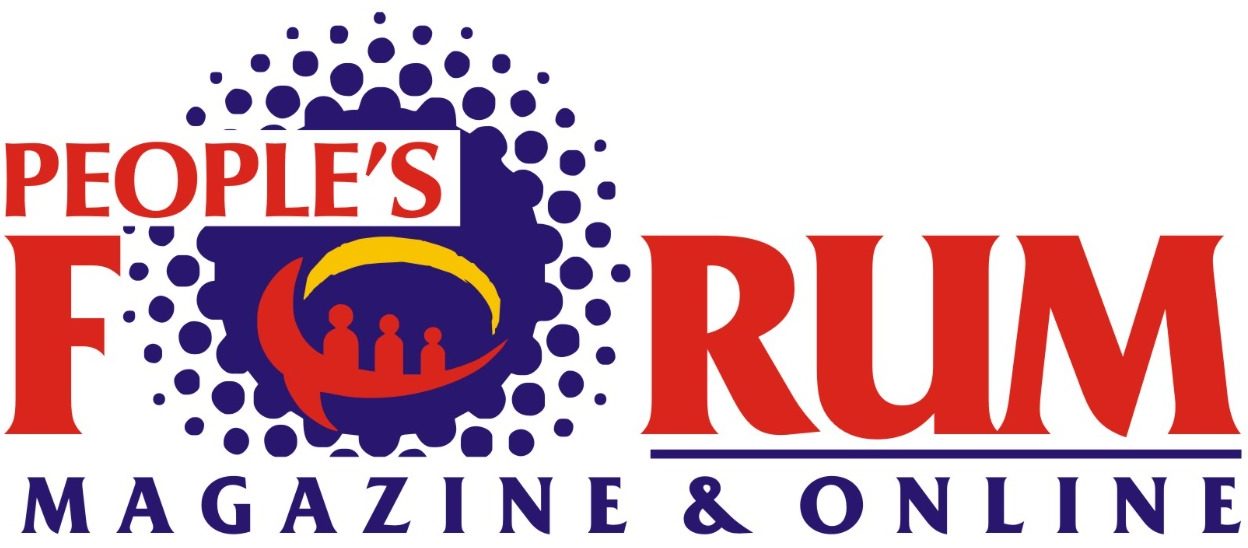In a coordinated push to support Nigerian shippers, key maritime institutions—including the Nigerian Maritime Administration and Safety Agency (NIMASA), Nigerian Shippers’ Council (NSC), Nigerian Navy, and the Abuja Memorandum of Understanding (MoU)—are advocating for the removal of War Risk Insurance (WRI) premiums on Nigeria-bound cargo. This initiative follows significant improvements in maritime security across Nigerian waters.
At the third edition of the Maritime Reporters Association of Nigeria (MARAN) Annual Maritime Lecture (MAMAL 2025), themed “Addressing the Burden of War Risk Insurance on Nigeria’s Maritime Trade”, NIMASA Director General Dr. Dayo Mobereola highlighted the financial toll of WRI, revealing that Nigerian importers have paid over $1.5 billion in premiums over the past three years—despite four years without a single piracy incident.
Represented by Mr. Victor Illo, Deputy Director of Reform Coordination and Strategic Management/Blue Economy, Mobereola credited the improved security to:
– The Deep Blue Project, launched in 2021, which deployed land, sea, air, and intelligence assets to protect Nigeria’s maritime domain.
– The SPOMO Act (2019), which has led to successful pirate convictions and strengthened legal deterrence.
These efforts earned Nigeria’s removal from the International Maritime Bureau’s piracy-prone list in 2021 and praise from the International Maritime Organization (IMO). In 2023, the International Bargaining Forum (IBF) also delisted Nigeria as a high-risk maritime zone.
Mobereola emphasized that regional collaboration has played a vital role in reducing piracy across the Gulf of Guinea. However, he lamented that the economic burden of WRI remains heavy, with Nigerian importers still paying excessive premiums.
To address this, NIMASA and the Federal Ministry of Marine and Blue Economy have engaged global stakeholders—including Chatham House, BIMCO, the Danish government, and the IMO—to advocate for the removal of WRI premiums based on Nigeria’s security progress.
“These engagements are ongoing, and we remain committed to sustaining our achievements,” Mobereola stated. He urged shipowners, charterers, cargo owners, and legal experts to review the newly revised 2025 BIMCO War Risks Clause for Voyage Charter Parties (VOYMAR), which replaces the 2013 version and offers clearer guidelines on war risk premiums.
He also encouraged stakeholders to adopt the Best Management Practices for Maritime Security 2025 (BMP5) to enhance threat detection and ensure safer maritime operations.
Meanwhile, NSC Executive Secretary Barrister Pius Akutah announced plans to engage international insurance underwriters over the continued imposition of WRI premiums. Represented by Mrs. Margaret Ogbonna, Director of Regulatory Services, Akutah described the $1.5 billion paid by Nigerian shippers over the past three years as unjustifiable, given the zero piracy incidents recorded in the Gulf of Guinea.
Akutah revealed his intention to meet with Lloyd’s Market Association and Protection & Indemnity (P&I) clubs to advocate for a data-driven reassessment of Nigeria’s maritime risk profile. He also pledged to collaborate with NIMASA and other agencies to compile and present empirical evidence reflecting current security realities.
He reaffirmed NSC’s support for ongoing discussions at ECOWAS, the Gulf of Guinea Maritime Collaboration Forum (GOGMCF/SHADE), and IMO platforms, all aimed at securing global recognition of Nigeria’s security achievements and ensuring fairer treatment by the international shipping and insurance communities.
“Solving this challenge demands sustained collaboration between government, private sector, media, and global partners,” Akutah stated. “Figures show Nigeria has paid over $1.5 billion in the past three years alone to Lloyd’s of London, P&I insurance, and other foreign insurers.”
The Flag Officer Commanding, Rear Admiral Gregory Oamen, represented by Captain Olanrewaju Oginni, gave analysis of maritime incidents and the true state of security in Nigerian waters.
According to Admiral Oamen, Nigeria, with its coastline of about 420nm and EEZ of 84,000 square nm contains strategic resources that are pivotal to national economic development and security in many ways. These include about 37.2 billion barrels or 2.92 per cent of total global crude oil reserves and 182 trillion cubic feet of gas reserves, Vast shipping infrastructure including ports and docks as well as huge fish stock that is in great demand locally and internationally and is generally untapped. Also, about 86 per cent of Nigeria’s total external trade is conducted by sea, while the oil and gas industry accounts for 40 per cent of Nigeria’s GDP, 9 per cent of total exports, and 83 per cent of total revenue.
He stated that Nigeria’s maritime environment is evidently the economic centre of gravity of the nation and has the potential to accelerate economic development in Nigeria if properly harnessed.
He noted that the increasingly changing security dynamics in Nigeria’s maritime environment and the Gulf of Guinea (GoG) warranted the Navy to devise and implement several strategies to support her policing efforts. “This involves the acquisition of modern state-of-the-art platforms and collaboration with other maritime stakeholders for enhanced NN policing operations. In the early stage of NN operations, maritime policing operations focused on interdicting criminal activities, thereby enhancing maritime security. Also, the NN established operations such as Operations AWATSE, CALM WATERS, TSARE TEKU, and recently WATER GUARD II and DELTA SANITY. These operations were established to enhance policing operations towards achieving safe shipping activities, deep-sea mining and the sustenance of ocean resources. The operations have led to a relative presence of NN ships at sea, which in turn increases NN patrols and hours at sea. The effort also contributed to the zero incidents of piracy since Nigeria was delisted from piracy-prone countries in the last quarter of 2022.”
The Flag Officer Commanding disclosed that NN has leverage maritime collaboration with major stakeholders to improve its policing operations to curb maritime incidents for enhanced maritime security.
He condemned the prevailing global perception of Nigeria’s maritime environment which was largely based on a period of heightened piracy activity in the late 2010s. “But a data-driven analysis of recent years tells a completely different story. The data unequivocally demonstrates a significant and sustained decline in maritime incidents, thanks to the concerted efforts of the NN and its strategic partners. In 2020, the GoG saw a total of 84 attacks on ships, with 135 seafarers kidnaped for ransom. The GoG experienced about 50% increase in kidnapping for ransom between 2018 and 2019 and around 10% increase between 2019 and 2020.
“However, with the renewed efforts by the NN to increase presence within the GoG, far reaching success has been recorded. “According to the IMB’s Piracy and Armed Robbery Against Ships Report, Nigeria had 33 in 2017, 48 attacks in 2018, 35 in 2019, 35 in 2020 and 6 in 2021, no attacks in 2022, 2 in 2023 and 1 in 2024.”
He maintained that the number of reported incidents has plummeted, with the latest data from 2022 showing a complete absence of piracy and kidnapping for ransom while just 1 attempted case in 2024.
“This remarkable success is not a coincidence, it is a direct result of strategic, sustained and intelligence led operations. Additionally, it would be recalled that the IMB in March 2022 delisted Nigeria as a piracy‑prone country due to sharp decline in attacks while the International Bargaining Forum (IBF) in February 2023 removed Nigeria from “risk maritime nations” designation. Also, the IMB Piracy and Armed Robbery Prone Areas and Warnings (2024) reports that, incidents in Nigeria have decreased significantly, but vessels should still remain vigilant as waters are still risky, although on her 2024 Piracy Risk Map, only one case of attack was recorded within Nigerian waters in 2024. The IMB, a leading authority on maritime crime, has consistently highlighted this reduction, noting a steep drop in incidents in the Gulf of Guinea region, with Nigeria at the forefront of this success.
“For instance, in 2022, the NN spent a total of 36,809 hours 40 minutes on patrols. The policing operations of the NN led to the arrest of 191 suspects in 2022 and 80 suspects in 2023 respectively. The efforts of NN response initiatives have equally made NN maritime environment safe for maritime activities such as offshore exploration and fishing to thrive,” he noted.
Oamen further noted that the number of ships that call in Nigeria’s Ports has risen from 123 in 2021 to about 145 daily in 2023 while the GDP from fishing has significantly increased from N12 Billion to N15 Billion during the period under review.
In his presentation, the Secretary-General of the Abuja Memorandum of Understanding (MoU), Captain Sunday Umoren called on stakeholders to work together to achieve success in the fight to remove the arbitrary War Risk Insurance surcharge.
He stressed that the war risk premium is only benefitting shipowners who are foreigners.
Noting that Nigeria is blessed with so much oil, sweet bunnies, light, but regretted that the country is not really gaining from it in terms of transportation, adducing this to external and internal factors.
“Let’s work together to get the War Risk Insurance surcharge removed because there is no war. And we will be supportive,” Captain Umoren said.
Earlier in his welcome address, the President of MARAN, Mr Ewrhujakpor Godfrey Bivbere, emphasized that the gathering is not only to exchange ideas but to confront a pressing challenge that continues to shape the trajectory of the maritime industry: the burden of war risk insurance on Nigerian maritime trade.
He stated that this year’s theme could not be more timely or relevant as Nigeria strives to reposition itself as a hub of maritime excellence in West Africa, the persistent imposition of war risk premiums on vessels calling at our ports remains a significant obstacle to competitiveness, cost-efficiency, and investor confidence.
Bivbere noted that it is a burden that affects not just shipowners and terminal operators, but the entire value chain—from importers and exporters to the average Nigerian consumer.
“MARAN, as the voice of maritime journalism and advocacy, is proud to convene this forum where industry leaders, policymakers, security experts, and global partners can engage in robust dialogue.
“Our goal is clear: to explore actionable solutions, foster transparency, and galvanize collective effort toward lifting the war risk designation that has long shadowed our waters.
“We are honoured to host distinguished speakers and panelists whose insights will illuminate the path forward. Their expertise will help us understand the root causes, assess the impact, and chart a course toward restoring confidence in Nigeria’s maritime domain.
“Let me also commend the unwavering commitment of the Federal Ministry of Marine and Blue Economy, NIMASA, the Nigerian Ports Authority, and our security agencies for their ongoing efforts to enhance safety and compliance across our ports and waterways. “Your work lays the foundation for a future where Nigerian trade can thrive without punitive insurance surcharges,” he stated.
The MARAN President urged all participants to engage with open minds and bold ideas. “Let this gathering be a catalyst for reform, resilience, and renewed global trust in Nigeria’s maritime potential”.





